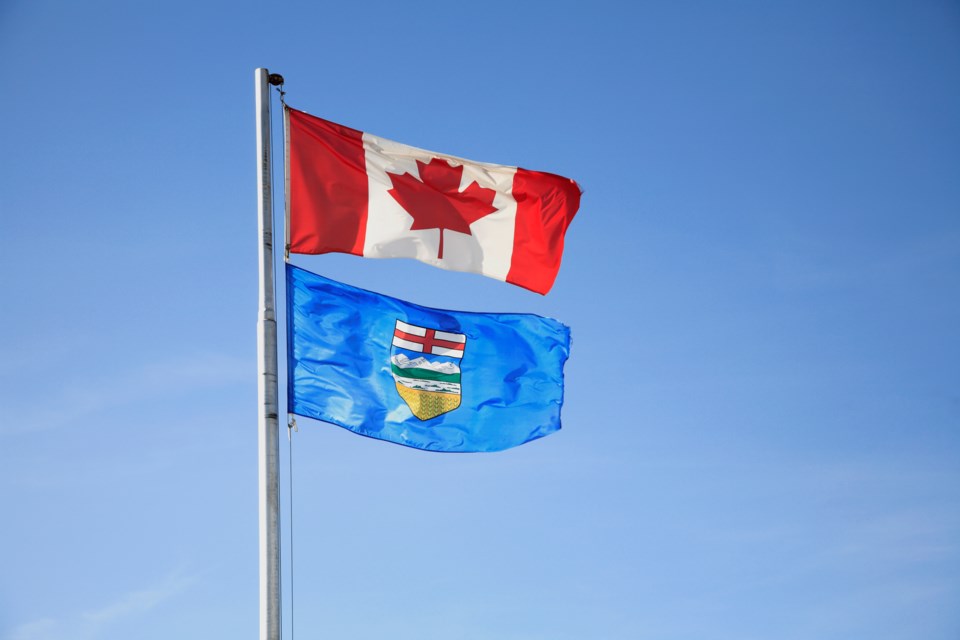In the 20th century, when countries waged internal battles over their future, the intellectual stature of proponents and opponents was rarely in doubt. Pierre Trudeau and René Lévesque were featured on the cover of TIME Magazine in February 1978. Jean Chrétien and Jacques Parizeau would have probably enjoyed the same treatment in October 1995, had the United States not been consumed by the O.J. Simpson murder trial.
The last Québec referendum happened almost three decades ago, in the early days of the internet and way before social media turned nobodies into influencers. As Canada ponders the possibility of a referendum on Alberta’s future, it is difficult to figure who could grace the cover of TIME.
One contender would be Alberta Premier Danielle Smith, whose government recently proposed to reduce the threshold for citizen initiatives. Proponents will have 120 days to gather the signatures of 10 per cent of voters who participated in the last provincial election to compel a “yes” or “no” provincewide vote on whether Alberta “shall become a sovereign country and cease to be a province of Canada.”
Smith’s behaviour has been particularly perplexing for some Canadians. This is, after all, a premier who promised pardons for individuals who violated COVID-19 health directives, somehow assuming that the guidelines that apply to governors and presidents extend to Alberta. Smith’s inclinations to become a governor appear to have started way before her visit to the Mar-a-Lago Club in Florida and the defeat of the Conservative Party in this year’s federal election.
Another key player in this saga will be Prime Minister Mark Carney. In our survey, just over two thirds of Canadians (67 per cent, and 58 per cent among Albertans) express confidence in him to make the best decisions on issues of national unity. The rating is lower for Pierre Poilievre (59 per cent, and 56 per cent among Albertans).
Canadians are not overwhelmingly thrilled with the recent developments in Alberta. More than two in five (44 per cent) believe referendum proponents will not be able to gather the required signatures, almost half (47 per cent) think the federal government should not allow the vote and a majority (56 per cent) say that, if voters in Alberta ultimately choose to become a sovereign country, Canada should not allow it.
Compared to the Canadian average, Albertans are more likely to foresee the signature drive being successful (48 per cent) and to urge the federal government to allow a provincewide vote (44 per cent). However, just over half (51 per cent) want Ottawa to block Alberta’s separation in the event of a “yes” win.
Albertans are more convinced about being “better off” as a country (35 per cent) than as a U.S. state (25 per cent). The results are similar when the question is posed differently: 34 per cent of Albertans would vote to become a country and 22 per cent would vote to join the U.S.
The results so far seem innocent enough. There are no “winning conditions,” to borrow the term used by Lucien Bouchard to justify a third Québec referendum, and most Canadians believe that ballot, even if successful, should not be recognized by Ottawa.
This brings us to the third person who could conceivably be featured in a TIME cover on Alberta’s future: Donald Trump. While only 31 per cent of Canadians believe voters in Alberta will choose to become a sovereign country, almost half (45 per cent) think the U.S. would take steps to annex Alberta as a state. This is a larger proportion than those who think Washington will recognize Alberta’s sovereignty in the event of a “yes” victory (43 per cent) or a “no” outcome (32 per cent).
It is not a surprise to find Canadians looking warily at what the U.S. could do. It is not a surprise to see the country more preoccupied about illegal actions from a twice-impeached American president than the legal steps that Albertans could or would take once the vote happens.
Mario Canseco is president of Research Co.
Results are based on an online survey conducted from June 1-3, 2025, among 1,001 adults in Canada. The data has been statistically weighted according to census figures for age, gender and region in Canada. The margin of error is plus or minus 3.1 percentage points, 19 times out of 20, in each country.




